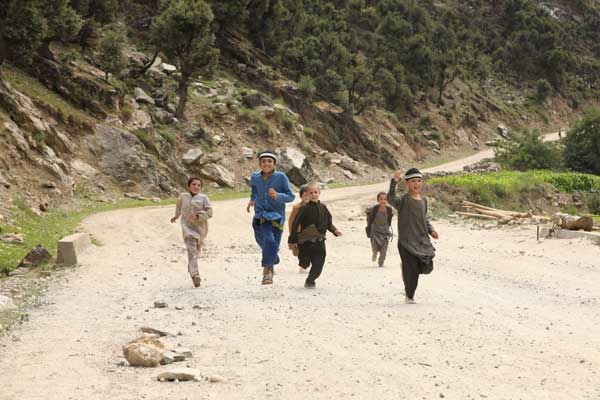On August 30th, at 11:59 p.m. Kabul time, Major General Chris Donahue was the last American soldier to leave Afghanistan. After 20 years, 172,390 deaths, and $2 trillion American dollars, the Afghan war has finally ended. The United States, despite spending $2 trillion dollars and potentially killing nearly 50,000 civilians through airpower alone (according to the UK watchdog Airwars), has almost nothing to show for it. The government the U.S. helped to install, and supported throughout the two decades in Afghanistan, disintegrated in a matter of weeks, leading to accusations that it was just another “puppet” government. The Afghan National Army, equipped and trained by the Americans for two decades, dissolved with every step the Taliban took, and many even took their American arms and joined forces with the Taliban. The Taliban, armed with outdated AK-47’s and dusty old motorbikes that transported three or four men at a time, now have billions of dollars’ worth of American technology, including helicopters and at least one Super Tocano, a light attack aircraft, part of the arsenal used to relentlessly target and bomb the Taliban for twenty years. And with one last drone strike on the eve of departure, America killed ten civilians, including one aid worker for an American NGO, and 7 children. U.S. officials first claimed that they were targeting an ISIS-K affiliate but later admitted those killed were civilians with no connection to ISIS-K. For America, all these points added up to debacle and humiliation, but while the criticism of America will endure for the foreseeable future, the future of Afghanistan and its people is perhaps a more pressing matter.
No foreign power has fully controlled Afghanistan since before the Soviet invasion of 1979. For forty years, the country has been in a constant state of war, with civilians largely paying the price. Now, with the Taliban in complete control after the American withdrawal, and the capture of Panjshir, the people of Afghanistan have finally seen an end to war. No matter how the Taliban decide to rule, it is much more likely that peace will prevail in the war-torn nation. The speed of the Taliban victory, along with the crowds that greeted them as they swept through Afghanistan, suggest that Afghans want to see peace more than anything. This also makes the Taliban’s victory more of a moral one than a military one; despite the many doubts surrounding the Taliban’s ability to rule, they seem to have popular support outside of Kabul. It is now the new government’s responsibility to not only provide peace, but also uphold promises of development, justice, and progress. The appointed leader of the newly dubbed Islamic Emirate of Afghanistan, Hibatullah Akhunzada, has called for ex-officials and fleeing Afghans to return, offering those who worked with America a “general amnesty.” Several senior members of the Taliban, including spokesperson Sohail Shaheen, have repeatedly called for fleeing Afghans to remain and help “rebuild the country” without fear of retribution. Many of those fleeing are from the educated and professional class, people who Afghanistan desperately needs for a rebuild. With cash reserves frozen by the U.S. and the IMF, the Taliban needs those knowledgeable and skilled workers, as well as support from the international community.
A Moral Obligation to Support the Afghan People
The United States and NATO always claimed to have been fighting for the people of Afghanistan and their well-being. Now, when the U.N. warns that Afghanistan can fall into nearly universal poverty by 2022, the West must finally fulfill those promises. Isolating the new Afghan government would only result in greater human catastrophe. The international community, if acting in the best interest of the Afghan people, must return Afghan foreign reserves and reestablish the external aid that composed 40 percent of Afghanistan’s GDP, to keep poverty at bay. Although the United States pledged $64 million in aid, that figure is less impressive when juxtaposed with the $2 trillion the U.S spent on military operations that have destroyed the central Asian nation. Not only do American policymakers owe an explanation to American taxpayers for a $2 trillion war, but with that kind of money, Afghanistan would have had the 9th highest GDP in the world, if only those sums were invested into building the nation instead of devastating it.
Not only does the United States have a moral obligation to support the people of Afghanistan after two decades of war, but it is also in America’s interest to prevent the growing influence of authoritarian powers such as Russia and China, which are certainly eyeing the vacuum left behind America’s withdrawal. If the United States cuts off ties with the new government entirely, it risks allowing China and Russia to extend their spheres of influence in a geopolitically critical region. Moreover, perhaps the most important player in this region is Afghanistan’s southeastern neighbor, Pakistan. Pakistan has absorbed an estimated 2.5 million Afghan refugees, although there are likely many more. An end to the war in Afghanistan, regardless of who composed the government, was always in Pakistan’s best interest, to Washington D.C.’s frustration at times. The fact that the Afghan government, which collapsed with surprising speed as the Taliban moved closer to Kabul, had close ties to India only adds to Pakistan’s satisfaction. However, Pakistan’s greatest fear is another influx of refugees, and the rising poverty in Afghanistan only increases this fear. Throughout the course of the war, Pakistan and the U.S. have had an uneasy relationship, but Washington can finally gain some leverage with its old ally by promising poverty-reducing aid to Afghanistan in return for Pakistan’s consistent cooperation on regional security concerns. Winning Pakistan’s hand of friendship—one that Pakistan has increasingly extended to China in recent years—could be a significant gain for the U.S.
There still remains quite a bit at stake in Afghanistan, even for a humiliated America. Repeating the mistakes of the Soviet withdrawal will only increase the likelihood of that retreat’s aftermath, which included a civil war and the rise of groups like Al-Qaeda. If nothing else, America has a clear moral obligation to provide aid to a country it helped ruin, even if that means working with the Taliban. Along with their more diplomatic appearance, the Taliban proved “helpful and useful” partners during the evacuation process, in the words of U.S. General Kenneth McKenzie. It is also in the Taliban’s best interest to work with Washington D.C. in distributing aid, hence the Taliban’s repeated calls for Afghans not to flee the country, as professional aid workers might be among those trying to leave.
In the context of a circling Russia and China, as well as the possibility of earning consistently positive relations with Pakistan, it is in America’s best interest to not cut itself off from the region at this crucial time. And for nearly 40 million exhausted Afghans, that seems to be the best way forward.





